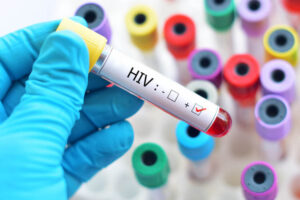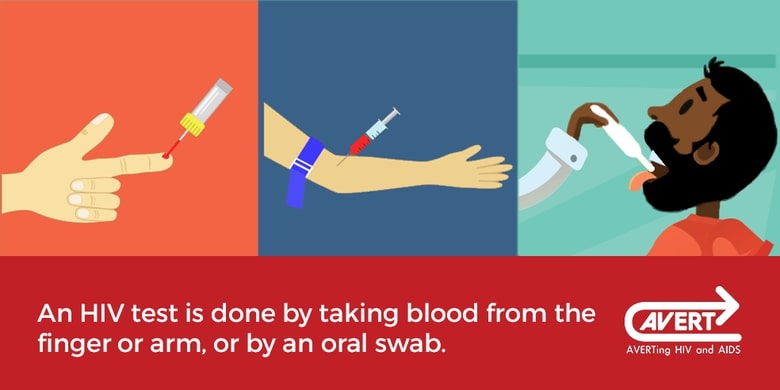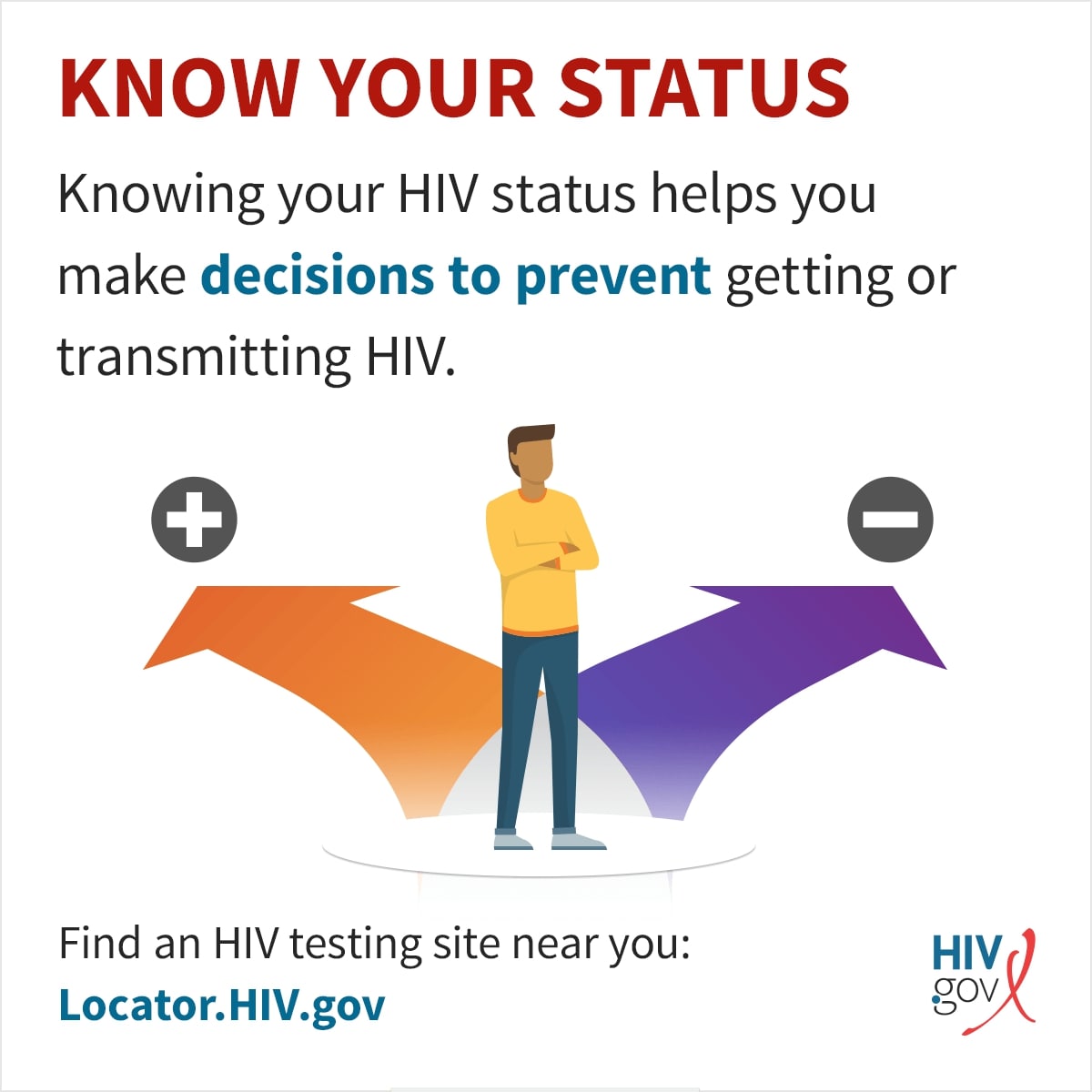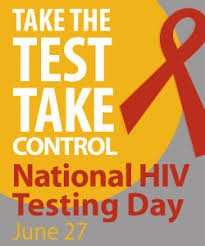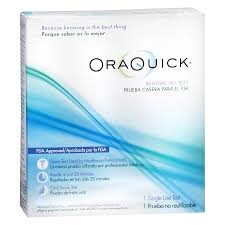Posts Tagged ‘National HIV Testing Day’
National HIV Testing Day (NHTD) 2022. By Our Student Pharmacist, Andrew P. Capozzi.
Since its first observation in 1995, National HIV Testing Day (NHTD) has always taken place on June 27—and this year was no exception.
Sponsored by the United States Department of Health & Human Services (USDHHS), this day encourages the American public to get tested for HIV, or “human immunodeficiency virus,” to know their status, limit the spread of the virus, and potentially seek connections to health care services for support and treatment.
This year, NHTD has designated its 2022 theme as “HIV Testing is Self-Care,” suggesting that individuals taking action to get tested helps promote their physical and mental health, benefiting the community at large.
HIV is a virus that’s spread through sexual contact, the sharing of needles, or from a pregnant mother to her developing child.
Often, symptoms start two to four weeks after infection occurs, which can include:
- fever
- chills
- rash
- night sweats
- muscle aches
- sore throat
- swollen lymph nodes
- exhaustion
However, some individuals may have the HIV virus but not experience any symptoms. The only way to be certain if one is infected with the virus is to seek testing, which is available at pharmacies and healthcare sites throughout the local community. Additionally, many organizations offer self-testing kits that can be ordered online, completed at home, and mailed in for analysis.
Getting tested and knowing one’s HIV status can help make decisions to prevent getting or transmitting the virus. If untreated, the infection can lead to AIDS, or “acquired immunodeficiency syndrome,” which interferes with the body’s ability to fight infections and risks shortening one’s life.
To help prevent the spread of HIV, the Centers for Disease Control and Prevention (CDC) identifies the following recommendations:
- use protection when engaging in sexual activities
- take pre-exposure prophylaxis (PrEP) medication (if recommended and prescribed by a doctor) prior to sexual encounters
- practice abstinence from sex
- avoid sharing needles or syringes
- get tested regularly
HIV tests can be conducted in several different ways, with some tests having blood drawn from the arm, some having a small amount of blood taken from a finger-stick, and some having saliva collected from an oral swab. No matter what method of test you may choose or may be offered at a local site, you are helping the HIV epidemic get closer to its end and helping support the health of your local community.
While June 27 is primarily dedicated for national testing and awareness, we recommend that members of our communities consider taking a moment out of their week, just prior to the July 4th holiday weekend, to seek testing at their convenience.
Several sites around the Columbus area and beyond offer HIV testing services, as can be located on the USDHHS website at locator.hiv.gov.
In the near future, be on the lookout for upcoming HIV community testing clinics coordinated by Happy Druggist Pharmacy!
For more information, please visit www.cdc.gov/hiv
Resources:
Centers for Disease Control & Prevention (CDC). About HIV. U.S. Department of Health & Human Services. Published June 1, 2021. https://www.cdc.gov/hiv/basics/whatishiv.html
Centers for Disease Control & Prevention (CDC). National HIV Testing Day. U.S. Department of Health & Human Services. Published June 23, 2022. https://www.cdc.gov/hiv/library/awareness/testingday.html
Centers for Disease Control & Prevention (CDC). Prevention of HIV: The Basics. U.S. Department of Health & Human Services. Published June 1, 2021. https://www.cdc.gov/hiv/basics/prevention.html
U.S. Department of Health & Human Services. National HIV Testing Day. HIV.gov. Published June 22, 2022. https://www.hiv.gov/events/awareness-days/hiv-testing-day
National HIV Testing Day- June 27. By Our Student Pharmacist, Stephanie Brokaw.
Background
Although there still is not a vaccine available to prevent the transmission of HIV or a cure for the disease, many advancements have been made in terms of testing, treatment, and taking medications to prevent contraction of the disease.
Since 1995, June 27 has been marked as National HIV Testing Day in an effort to encourage people to get tested, know their status, and seek treatment or preventative care if applicable1.
HIV is most commonly transmitted through unprotected sexual activity or needle/syringe use2. HIV can live in a used needle up to 42 days depending on temperature and other factors2.
In 2018, there were 37,968 people newly diagnosed with HIV in the United States and there are an estimated 1.2 million people living with HIV in the United States2.
Testing
If you are sexually active, you should get tested at least once a year for all STDs, including HIV2. Testing is the only way to know your true status of whether you are HIV positive or negative2. HIV testing is covered by your health insurance for no co-pay as required by the Affordable Care Act and some testing sites may offer free tests to those who do not have insurance2.
There are three types of test available:
- nucleic acid test
- antigen/antibody tests
- antibody tests
The nucleic acid test is not routinely used for screening because of cost2.
The antigen/antibody test is performed by drawing blood from a vein or a finger prick2.
The HIV antibody test can be conducted with blood from a vein or fingerstick or from oral fluids2.
Most results can be seen within 30 minutes to 2 hours, but some tests may take up to 2 days2. No test can detect HIV immediately after infection; most tests can detect HIV 23 days or more after exposure2. If you believe you were exposed to HIV, post exposure prophylactic medication can be taken (start within 72 hours of exposure) to reduce the risk of contracting the disease2.
If you do not wish to go to a clinic for testing, you can perform testing at home with a rapid self-test called OraQuick, which is available upon request next business day at any of our pharmacies for $43.29.
Columbus Resources
Free HIV testing is available at many clinics in Columbus. You can find a clinic near you using this link. Due to the coronavirus pandemic, many testing sites may be by appointment only, so make sure you call ahead.
Resources:
https://www.hiv.gov/events/awareness-days/hiv-testing-day
https://www.cdc.gov/hiv/basics/index.html


